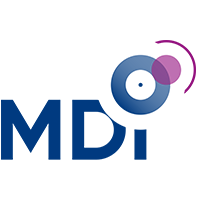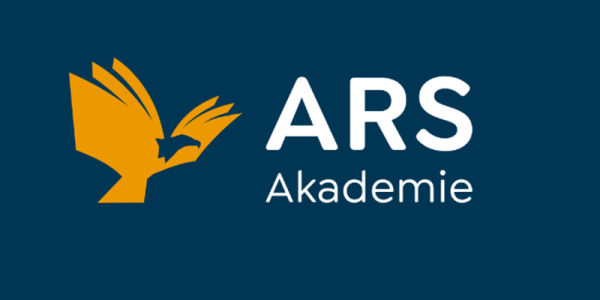
Generation Z isn’t the Problem but Our System is
Generation Z isn’t the Problem, but Our System is
Do you want to listen to this article? Click here to access our AI generated audio version!
Generation Z isn’t the Problem, but Our System is
The discomfort we feel in relation to them reveals that something in us needs to change, because when an entire generation steps away from the same path, perhaps it is not the generation that is lost, but the path itself that is poorly designed.
Zeca is our MDI Trainer based in Latin America and an expert on generational cooperation. This blog article is the first part of a series – read below to find out what he thinks about the youngest generation in the workforce, Generation Z, and let’s start a discussion on LinkedIn!
Today, in leadership conversations, it has almost become a mantra to say that “young people from Generation Z are lost and we cannot expect much from them.”
As a corporate trainer I repeatedly hear complaints or questions that express how difficult it has been for us to relate to this generation.
GenZ – The Useless Generation?
Many leaders describe this generation as immature, fragile, hard to manage, not very committed, rebellious or even disrespectful. And this narrative has become so common that it starts to sound like an absolute truth.
We have reached a point where some companies have simply stopped hiring apprentices from this generation. They have turned their attention to professionals over fifty who, even at the end of their careers, still fit the current ways of working.
As the good contrarian I like to be, I want to bring up a point that only a minority takes the time to investigate.

Reflect, don’t judge!
When we evaluate a behavior only through the lens of the discomfort it causes us, we completely lose the ability to understand its function and existential role.
In the paradigm of complexity, we understand that subjectivity is an inseparable part of the system, including the observer, and that every behavior carries an internal logic that only reveals itself when we examine the context that produces it, not just the effect it generates in us.
It is like judging a book only by its cover. What we feel when we look at the cover, without knowing the real content, says much more about us than about the book.
In the same way, when we look at Gen Z, we do not see only who they are and what they do, we also see the contrast between the Generation Z way of existing and the way we were formed, our beliefs, our world models and the scale we learned to use to measure behavior, ours and others.
And if both the environment has shaped Gen Z and has also shaped the way we judge them, then we need to change the lens of this observation and step away from unilateral judgment.
We need to start asking ourselves, why are they like this, what are these behaviors responding to, which structures taught this generation to act the way it does and what role these responses are playing in today’s society.
Putting Gen Z Into Context
If we look at this Gen Z phenomenon from a systemic perspective, and not a reactive one, it becomes clear that no generation collectively “wakes up” more fragile, more rebellious or more difficult simply by choice.
Every behavior is always a reflection of the environment, always a condition inherent to the context, an adaptive response to specific conditions that are present.
And for me, based on the topics I explore and study, the behavioral expression of Generation Z is not pointing to their weakness, as we like to assume. It is pointing to the deep obsolescence of the system around them.
Every generation is an adaptive response to the environment it inherits from the previous one and Gen Z is no exception. They are a response to a world that has changed faster than organizations have been capable of following.
And let me be clear about something.
I am not here to idealize Gen Z or place them on any pedestal, I also see they carry traits that challenge them deeply, regardless of the system they inhabit.
They can be anxious, impatient, prematurely exhausted, emotionally overwhelmed, and often unprepared to sustain prolonged discomfort. These are real characteristics that demand development, maturity and guidance.
But acknowledging their difficulties does not contradict what I am saying, it actually reinforces it. Because the turning point comes when we stop looking only at what they lack and start recognizing how much of our own worldview, our expectations and our outdated structures shape the very behaviors we criticize.
The moment we take responsibility for the lens through which we see them, we finally create the conditions for growth on both sides.

Why is Gen Z like this? (before labeling, we must contextualize and understand)
Before making any judgment, it is worth looking at this generation with analytical sobriety and recognizing the quality of their most striking traits, such as their authenticity, their search for meaning, their intolerance for incoherence, their rejection of rigid hierarchies, their heightened emotional sensitivity, their digital fluency and their constant questioning.
Born into the digital age, members of Generation Z arrive in the workplace with very clear expectations for agility, transparency and innovation.
And because they often bring an entrepreneurial and autonomy driven mindset, they tend to challenge traditional paradigms and seek more horizontal structures, with authentic and coherent leadership.
Seeing the Bigger Picture
These elements are not isolated characteristics, they are expressions of a way of existing that was shaped by an environment radically different from the one that structured the ways of the previous generations.
And although these traits are sometimes interpreted as opposition to earlier generations, or as the result of having had too many comforts which would have weakened their capacity for effort and discipline, they are actually a very interesting starting point for deeper, contextual investigation.
After all, as always happens in the transition between generations, these ways of behaving are adaptive responses to conditions that simply did not exist before.
So the invitation here is to broaden our perspective and look beyond isolated behavior. It is to observe the scenario that shaped this generation, the environment and the conditions that gave rise to each trait and to each way that Gen Z responds to the world.
Conclusion
Gen Z isn’t a sign of decline—they’re a sign that our systems haven’t kept pace. Their behavior points to the gaps in how we lead, organize and define work. When we stop labeling and start listening, we see that their traits aren’t flaws but responses to a world that changed faster than our structures did.
The real question isn’t what’s wrong with Gen Z, but what their reactions reveal about the environment we built. Once we shift the lens, it becomes clear: Generation Z isn’t the problem. They’re the diagnosis. The work ahead lies with us.

Zeca Ruiz
Leadership Trainer and Consultant
Zeca Ruiz is a Leadership Trainer, Facilitator and Consultant in Human and Organizational Development. He works in leadership development across Latin America and Europe, with experience in cultural transformation processes, team dynamics and the integration of systemic methodologies into corporate practice. He is a specialist in complex thinking, a generative coach and an integrative therapist, working at the intersection between human behavior, learning and the evolution of systems. He leads trainings, talks and development programs that combine depth, clarity and practical application to prepare people and organizations for high complexity environments.

























